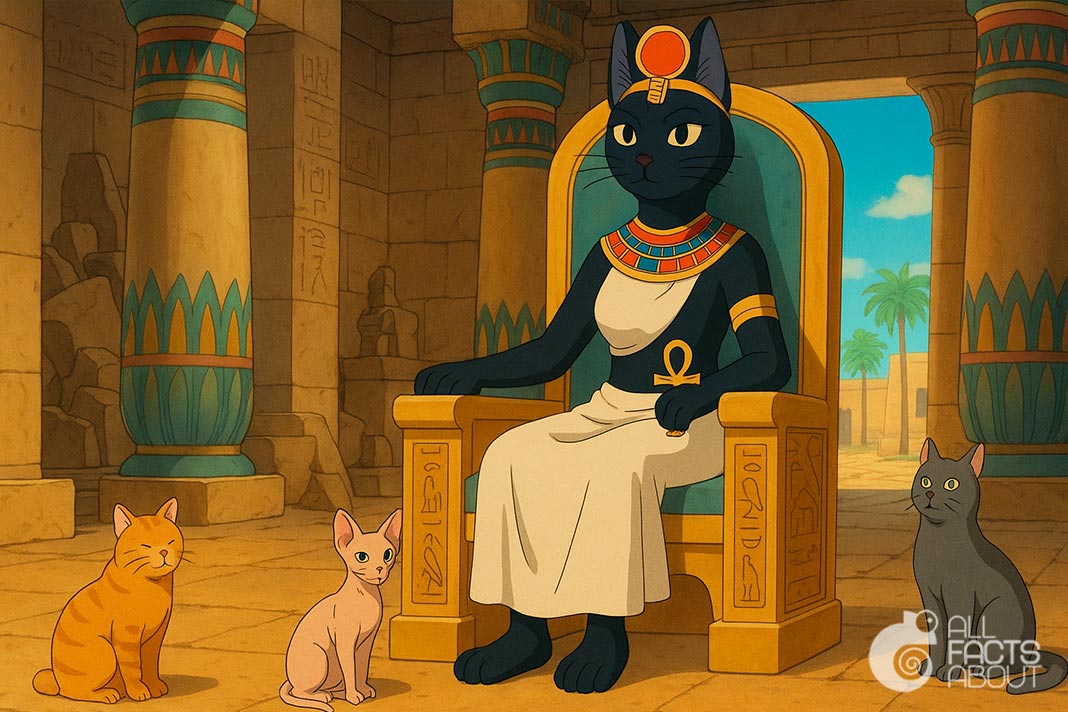Cats are one of the most popular pets in the world. Today, there are over half a billion domestic cats and about forty-four distinct cat breeds in 2019.
1. The ancestor of the modern cat is Proailurus Lemanensis was a prehistoric carnivore that was only slightly larger than domestic cats and lived over 20 million years ago. They fed on small mammals and lived mostly on trees.
2. A cat’s whiskers, known as vibrissae, are highly sensitive touch receptors. They detect subtle changes in air currents, helping cats navigate and hunt in the dark. Damaging or cutting these whiskers can disorient the cat and affect its sense of balance.
3. Each cat’s nose print is as unique as a human fingerprint. The ridges and patterns on a cat’s nose are individual and can theoretically be used to identify them.
4. While dogs mostly bark or growl, cats have a diverse vocal range, including meows, chirps, trills, growls, hisses, and purrs. Each sound serves a different purpose, from affection to warning signals.
5. In Japan, cats are considered symbols of good luck. The famous “maneki-neko” or beckoning cat statue is often placed at store entrances to bring fortune. Its raised paw is believed to attract money or customers.
6. Cats had a special place in the culture of Ancient Egypt. Many Egyptians worshiped the goddess of light Bastet, who had the body of a woman and the head of a cat. Cats are very revered here, they often lived in temples and even were mummified after death. Smuggling a cat out of Egypt was a crime punishable by death, but traffickers still managed to bring the cats to Athens and other major cities of the ancient world.

Bastet – ancient Egyptian goddess.
8. Cats, like humans, have baby teeth that should have erupted to permanent by the time a kitten reaches six to seven months old.
9. Everyone in the cat family has claws and everyone except the cheetahs can hide them in their paws. Because cats can’t hide their claws on their back paws, they become less sharp than claws on their front paws.
10. It turns out that a cat’s brain is biologically closer to our brain than a dog’s. We have the same parts of the brain responsible for emotions.
11. There are 230 bones in the cat’s body and they do have clavicles (collar bones), but unlike the long anchored collarbone we humans have, cats have tiny rudimentary collarbones that contribute to their ability to squeeze through tight openings.
12. A cat’s heart beats almost twice as fast as a human’s from 110 to 140 beats per minute.
13. Cat’s vision is both better and worse than humans. Cats can see perfectly in the dark but can’t detect colors as well as humans.
14. Cats have 32 muscles that control their ear, compared to only six that humans have, which is why the cat can rotate the ear an impressive 180 degrees.
15. On average, cats spend 2/3 days sleeping, it turns out that a nine-year-old cat has slept about six years of his life. When cats do not sleep, they spend one-third of their free time cleaning themselves.




